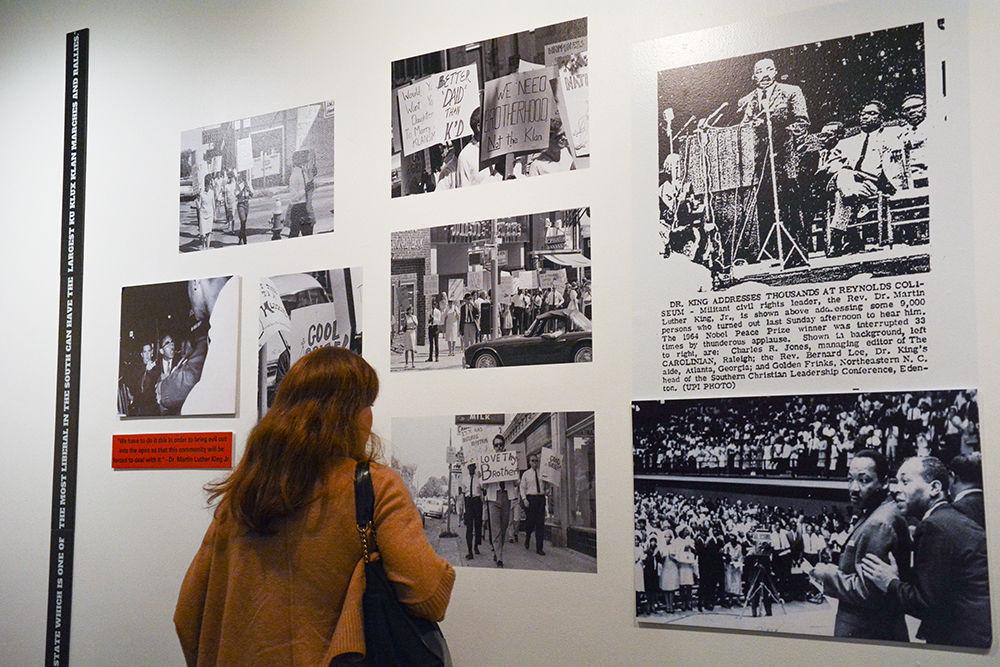The African American Cultural Center (AACC) is holding a series of events through the end of the semester to commemorate Martin Luther King Jr.’s legacy. The first event, which occurred on Jan. 21, featured a panel of speakers for an intergenerational conversation about the progression of civil rights.
Angela Gay-Audre, the director of the AACC, explained that, as King’s legacy lives on, the conversation surrounding his movement and the fight for racial justice should continue as well.
“When it comes to a fight for racial justice, when it comes to the work that MLK did during the civil rights movement… it was consistent,” Gay-Audre said. “It was always having people who you could go to and get support from, who could give insight, who is able to listen to your story.”
According to the AACC’s website, the MLK master class workshop series “will curate space for students, staff and faculty to collectively expand as we consider the historical and contemporary issues that surround thinking and doing amidst global pandemics.” The series will host four virtual workshops, each one revolving around a different question or topic for students and staff to reflect on.
Ashley Gaddy, the founder and head consultant of Ashley Gaddy Enterprises, which focuses on social justice education, social change and empowerment efforts in predominantly white institutions, will be hosting the first workshop on Jan. 28. Gay-Audre says that Gaddy will be key in answering students’ most pressing questions regarding racial justice and equity given the resurgence of the Black Lives Matter movement in summer 2020.
“When we bring in Ashley Gaddy, we really want Ashley to come and answer those questions that students have,” Gay-Audre said. “Students really did have the question, ‘What the hell are we going to do now?’”
The following workshops are centered around themes of rest and freedom, leadership identity and sexual violence, respectively, with a focus on the Black community and the civil rights movement. In the workshops to come, Gay-Audre said she is looking forward to “The Revolution Within Us: Finding Your Leadership Identity” the most.
“Folks who are going to come to [‘The Revolution Within Us’] may already kind of know their power, and they might be fine-tuning some things, but then, there’s going to be some folks who definitely don’t see themselves as a scholar, as a researcher, an organizer, an activist,” Gay-Audre said. “When those people come in, they’re able to see themselves in that new way. That is probably going to be my favorite moment. I love to see people engage in that way with themselves.”
Blair L. M. Kelley, the assistant dean for interdisciplinary studies and international programs at the College of Humanities and Social Sciences, spoke at the first MLK commemoration event to discuss the role of activism in the past and present in regards to King’s legacy.
“I think, sometimes, we lessen the importance of thinking about these questions, and we’re just focused on [MLK] day and Black History Month, but I think it’s an ongoing question,” Kelley said.
Gay-Audre hopes that, by attending the workshops, students will be able to answer the simple questions they’ve been asking for months and come to a deeper understanding of their goals at NC State and beyond.
“When I think of the learning outcomes, it really is meeting people where they are so that they are able to find themselves, so that they’re able to come to a place of recognition of themselves,” Gay-Audre said. “What I’m hoping people will gain from these workshops are the answers to the questions that they’re seeking and being willing to ask themselves more questions to get those outcomes.”
Kelley emphasized the importance of student involvement in workshops such as the ones the AACC are offering, especially as the fight for civil rights continues across the country.
“Students are part of the world; they’re our future leaders, so it’s essential for them to already be involved in these conversations,” Kelley said. “This generation of Black students are doing so much to be engaged in the wider world, to think about these bigger questions, and they are driving this kind of conversation.”








